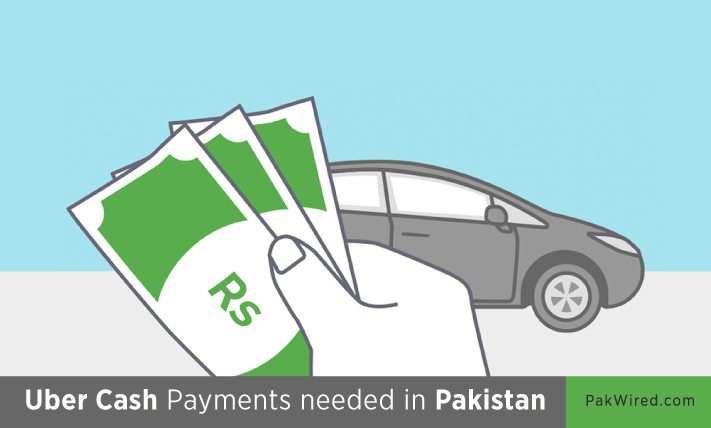In an economy that operates 90% on cash, if any company needs to gain market share, it has to operate on cash. There is still a lot of distrust in the Pakistani market regarding e-commerce in general and credit card payments in particular. Pakistanis don’t like to pay for something they haven’t seen or felt yet. More importantly, they do not like to make payments in advance and most would prefer payment in installments, if applicable.
Many people don’t know that the biggest strength of Uber is its seamless payment system. It integrates a debit/credit card with your account that is being charged once you complete the ride. This creates a lot of convenience for many people as they don’t have to carry petty cash and don’t need to worry about running out of cash either.
Uber has only recently rolled cash payments in a few cities in India. An Uber Executive based in Asia, Mike Brown, has the following to say:
We recognize that not everyone uses a credit card and there are different payment mechanisms in different places. We want to be able to serve everyone so, fundamentally, everyone needs to accommodate our system or we need to accommodate how riders in other markets pay.
Uber wants to open its service to new demographics by enabling cash payments. This is the only way it can increase its market share.
Another spokesperson from Uber is quoted to have said:
By offering cash as an alternative mode of payment, we are opening up Uber to a much larger base of potential users who prefer transacting in cash. By using Uber, they in turn are also introduced to a new, smart technology that enables them to move around their city easily, and potentially electronic payments which is something they may not have been familiar with or comfortable using previously.
Uber recently enabled cash payments in Singapore – a country where 69% of consumer spending is done via credit cards. Why? They want to bring in the rest of the 31%, those who are hesitant in using Uber because they don’t want to pay via credit cards. Many of them are students who don’t even have credit cards.
The same is the case with a developing nation like Pakistan. Many of Uber’s users are university students who don’t possess a credit card and operate on cash only. Although Uber’s credit card payment scheme can be really efficient and convenient for working professionals in Pakistan, the security system of local banks is not appropriate or strong enough to protect against any credit card frauds. Many people don’t activate their debit/credit cards online constantly 24/7, but only activate it once they need to make an online transaction, simply because they feel there’s a risk that their card will be misused. Therefore, Pakistanis will never set up their credit cards for recurring payments in Uber’s app.
Also, Rabtt is helping Uber design training modules for its drivers on Preventing Sexual Harassment. These modules & training sessions focus on informing participants about what constitutes harassment and explaining the legal structures in place to punish harassers. So there’s already a risk that Uber’s taxi can be dangerous which means that Pakistanis won’t pay in advance. In a society like Pakistan that still doesn’t largely trust something before it has tried it, cash payment options are extremely necessary in order for any business to thrive in the country.
Image credit: Uber


